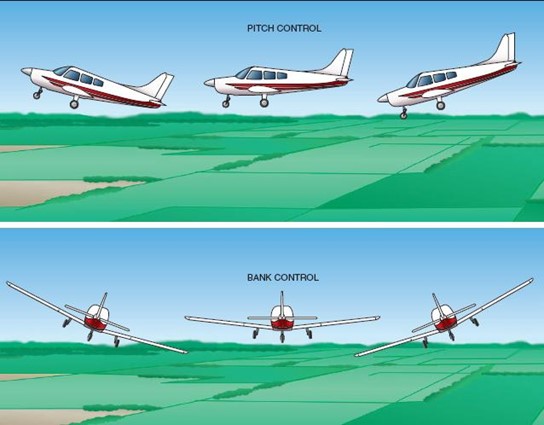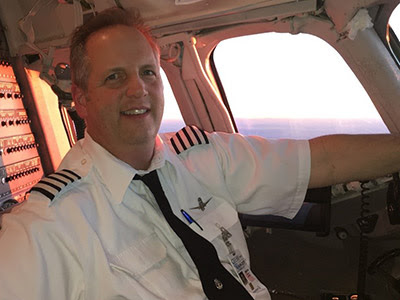| NAFI NOTAMs #24 |
It’s in the Recovery ~Guest Blogger Capt. Brian Schiff
Mistakes are opportunities to learn. In snow-skiing, every time you fall down, you become a better skier. The same applies in flying. Recoveries from errors such as a bounce, stall, spin, flummoxed steep turn, upset, or an unusual attitude are more important than the error themselves. Few of us can maintain altitude to the nearest foot, but most of us can correct back to our desired altitude accurately and with minimal deviations. It is the lazy pilot, letting the airplane fly them, who experiences large deviations. When a pilot fails to recover, an accident happens. Skilled pilots recognize errors and mistakes early, and they are more tenacious at correcting them. The earlier an error is recognized, the smaller the correction required. For example, if you depart a fix on a long leg only a degree or two off heading, the farther you fly without applying a correction, the further off course you will become, and the required correction will be greater. Allowing the airplane to wander several hundred feet below the intended altitude may require a full-power climb. An early correction will be minimal. Driving a car in a straight line involves a series of small corrections. The more experienced the driver, the more imperceptible the corrections will be.
Making timely and assertive corrections is important but be careful not to over-correct. This is exemplified by the pilot who is constantly too high or too low, too far left or too far right, or too fast or too slow. I teach students how to correct early during takeoffs and landings. Not everyone can nail the centerline perfectly—especially without making steering corrections. It is easy to stray left or right of centerline. But when I see a pilot stray from the centerline and not correct towards it, that is when I become critical. S-turns across a centerline, however, are not acceptable either. I have yet to see this maneuver in any Airman Certification Standards. Maintaining the centerline requires a series of constant corrections. To prevent over-correction, I teach pilots to aim for the end of the centerline (where the centerline intersects the end of the runway) and make small corrections from there. This starting point offers a safe heading that is converging with the centerline at a shallow angle. This keeps the airplane pointed toward the end of the runway and never toward the runway’s edge—which is somewhere you do not want to go. The later a decision is made to correct, the larger the correction must be. Decide early, take prompt action, and perform assertively. Always fly first, then talk. When in doubt—go around or do not take off. Don’t beat yourself up over mistakes—we all make them. View mistakes as opportunities to improve. When I snow ski, I fall a lot, yet I became great at skiing. It is ok to err—I’ve heard its human. Make every attempt to avoid mistakes, but when you do make them, it will be the correction that you apply which will determine your fate. It is not the mistakes by which we are measured, but rather the recovery. (Photo taken and provide by Brian Schiff)
Visit Brian's website at www.captainschiff.com and see what he has been up to via more stories, thoughts, and adventures
Blogs are intended for educational purposes only and do not replace independent, professional judgment. Statements of fact and opinions expressed are those of the author individually and, unless expressly stated to the contrary, are not the opinions or position of the National Association of Flight Instructors. NAFI does not endorse or approve, and assumes no responsibility for, the content, accuracy or completeness of the information presented. Readers should note content may appear in various media, including print, email, enews without further notice. |

 When I dine at a restaurant, I expect great service. Things can go wrong, but anyone can have an off day and make a mistake. If humans were perfect, just imagine how boring sports would be. Some customers tip based on how perfect the wait staff was; but it is more reasonable and fair to base the amount of the tip on how well the server makes up for what went wrong. Errors or mishaps provide an opportunity to prove (or improve) oneself.
When I dine at a restaurant, I expect great service. Things can go wrong, but anyone can have an off day and make a mistake. If humans were perfect, just imagine how boring sports would be. Some customers tip based on how perfect the wait staff was; but it is more reasonable and fair to base the amount of the tip on how well the server makes up for what went wrong. Errors or mishaps provide an opportunity to prove (or improve) oneself.
 Captain Brian Schiff
Captain Brian Schiff






Thanks, Timothy for taking the time to comment.
Brian this a great article and everything you said is true.To make mistakes is human and to stay on the safe side and be on a stabilized approach is paramount.Thankyou for sharing. Timothy Dwyer NAFI Member CFI/cFIi